Venezuelan Steemit Rockers Community
Hello, how are you doing ?, I am new in the community, it's my pleasure to say hello, I bring you a little about the history of rock in Venezuela, its beginnings and evolution
Beginnings of rock in Venezuela
In the decade of the 50s the young Latin Americans were enchanted by the rhythm and chords of a musical genre that revolutionized the customs of countries like the United States and England: rock and roll. In the city of Los Angeles triumphs the Chicano Richard Stephen Valenzuela, known as Richie Valens, who manages to introduce Mexican folklore to the American public with his version of "La Bamba" and initiates the history of Rock in Spanish. Numerous bands in Latin America put lyrics in Spanish to the great successes of artists like Elvis and Little Richard and make their way on the record boards of their countries. In Venezuela they are Los Impala
http://www.youtube.com/v/WvlZjpvfnTM?fs=1&version=3&fs=1&version=3&fs=1&version=3&fs=1&version=3&fs=1&version=3&fs=1&version=3&fs=1&version=3
the precursors, five young people from Maracaibo who, in the early 60s, face the challenge of interpreting the compositions of the famous world groups. Pop culture is gaining ground throughout the world and Rock begins to be nourished by different elements that will result in the birth of numerous genres. Following in the footsteps of Los Impala, bands such as Los Supersónicos, Los Dangers, Los Dinamicas, Los Claners, Los 007, Los Cuatro Monedas and Los Clippers, gain space in the media and make local television multiply the presence youthful in its programming, initiating at the same time the search of a own style. Many initiatives are carried out to give a boost to national production, mostly concerts that sought to imitate the great musical events that took place in the United States and other countries.
This way, Venezuelans could enjoy the Festucab, the presentations at Macuto, the Festival of the former Grano de Oro airport in Maracaibo and the Festival del Parque del Este, whose only requirement to enter was to take a flower with them. In its race to consolidate itself, the Creole Rock counts on allies like the magazine "Gente Joven".
In the 70s Venezuela struggles not to lose prominence in the development of rock in Spanish, come to the fore, Una Luz, Pastel de Gente, El Zigui and La Cuarta Calle, among other projects, however, fail to give continuity to the success achieved by the genre a few years ago. Only musicians like Vitas Brener manage to keep on stage, with sophisticated proposals in which they fuse rock concepts with Venezuelan rhythms and jazz resources.

From the Underground scene to the labels
Already in the decade of the 80s, the inventory of the Creole bands is extended, as well as the genres within the rock. Venezuela lives a time of change and music does not escape from it. All those groups that lean towards Rock and its different variants specify a kind of urban treaty that took popularity as the "movement of new bands". The first five years of the decade recorded an encouraging movement of HEAVY ROCK, led by musicians such as Paul Gillman, leader of Arcángel; and bands like Resistance, High Frequency, Fahrenheit, Flood, The Same People, Do, Fugue, Grand Bite and Aditus. Trying to balance the balance of the genres, National Security presents us with a work influenced by the punk culture. The New Wave makes an appearance with PP's.
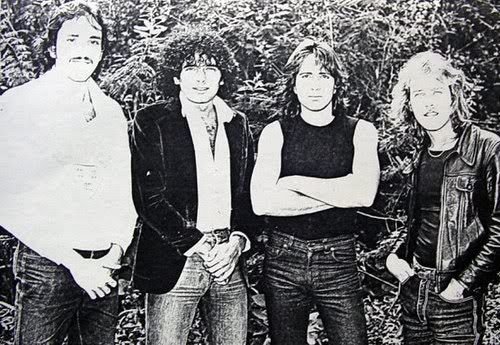
http://www.youtube.com/v/oaqUq1tKadg?fs=1&version=3&fs=1&version=3&fs=1&version=3&fs=1&version=3&fs=1&version=3&fs=1&version=3&fs=1&version=3
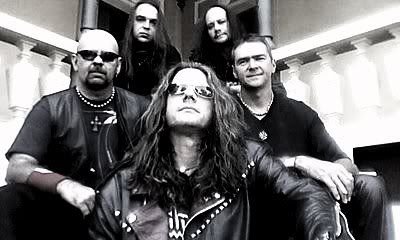
Fuente
http://www.youtube.com/v/j_CfdzGqOLo?fs=1&version=3&fs=1&version=3&fs=1&version=3&fs=1&version=3&fs=1&version=3&fs=1&version=3&fs=1&version=3
The 80s continue their evolution and the purism of the heavy rock bands is not enough to feed an audience that is constantly bombarded by new cultures and countercultures. The representatives of the Heavy sink into their antipathy towards the mergers and changes and that is how protagonists in the national scene take part in groups that present novel proposals, influenced by genres such as dark, punk and ska, in addition to the rebound of pop, now more sophisticated and incisive. In the middle of this process, one of the most emblematic bands in the history of national rock is consolidated: Sentimiento Muerto.
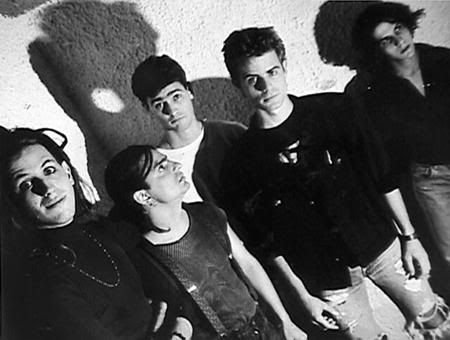
http://www.youtube.com/v/LL3_55qnfUo?fs=1&version=3&fs=1&version=3&fs=1&version=3&fs=1&version=3
A country that woke up to the demands of a world economy, a control of change, a celebrated democracy that was not enough to keep the entire population happy and intellectuals discussing the need to "sow oil": a scenario where there was room for slogans of young people who felt disillusioned by the national scene. In the midst of this atmosphere begins to be heard in the underground scene "Dead Feeling", a formation that aims to manifest the discontent of young people through their issues, with an anarchic attitude and rejection of the proposed system. "Dead Feeling" translates his name into Spanish, and that's how "Sentimiento Muerto" is becoming popular, whose premise "perhaps being young is being delinquent", begins to gain followers.
At the same time, among the other bands that make up the underground culture two formations take strength inspired by other styles, Public Disorder diffuses its protest themes to the rhythm of ska and reggae and Zapato 3 submerges in the dark. After many performances Sentimiento Muerto draws the attention of one of the largest record companies in the country, signs a contract, and gives national bands the idea of a rebirth of rock in the country's music industry. During little more than 10 years of history Sentimiento Muerto recorded three albums, "Love does not exist, we have to do it" (1987), "Without shadow there is no light" (1989) and "Infecto de affecta" (1991), besides the compilation "Even if you do not want it" (1997). The group gave concerts in different countries of Latin America and Spain and recorded the video clip of their song "Payaso" at the legendary CBGB in New York.
http://www.youtube.com/v/AVFmjaNsejk?fs=1&version=3&fs=1&version=3
For its part, Public Disorder and Shoe 3 did their thing, consolidating a trilogy that opened new horizons to national rock. This new boom awakens once again the media, which notice how a wide audience is interested in that homemade rock that relates their problems, their sorrows, their reality.
A new ally "New Bands"
Evident is the solidity of Dead Sentimiento, Disorden Público and Zapato 3 as the most important bands of the country by then and they are the ones in charge of representing the national movement in the Ibero-American Rock Festival, held in Caracas at the end of 1991, in which Groups and figures of wide trajectory participate, such as Os Paralamas do Sucesso, Los Rodríguez, La Unión, the Argentinean Fito Páez and the Spanish Miguel Ríos. This year the Festival of New Bands is celebrated for the first time, an initiative that since then intends to support and make known the new proposals that emerge from the national scene and that has become the best annual inventory of Venezuelan rock.
http://www.youtube.com/v/da00H7wVsvc?fs=1&version=3&fs=1&version=3
In any case, the rock in Venezuela continues in the underground and every time there are more bands interested in cultivating any subgenre of it: from the most elementary rock and roll as well as the most progressive and fused forms that can exist until the most extreme like bands that mix sounds regodiandose in styles like death metal, black and gotic; and alongside the bands there are some initiatives that with greater or lesser success are devoted to promoting the national underground movement despite the manifest disinterest of the labels and media, who only get carried away by "what sells".
Well this is all for now I hope you have enjoyed the post so see a bit about what has been the evolutionary process of rock in Venezuela even that for sure I fell short as it was a brief historical review without much detail.

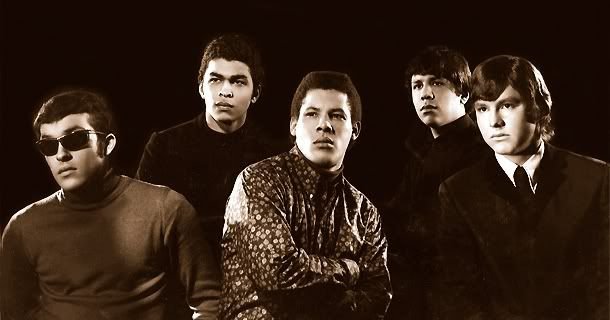

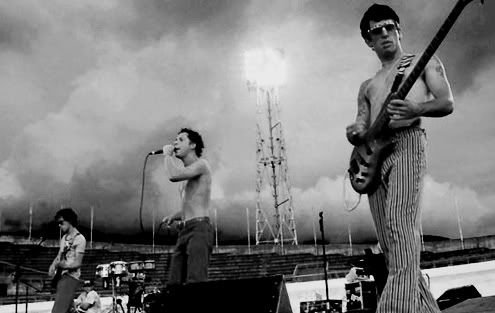
Congratulations! This post has been upvoted from the communal account, @minnowsupport, by Cayayo from the Minnow Support Project. It's a witness project run by aggroed, ausbitbank, teamsteem, theprophet0, someguy123, neoxian, followbtcnews, and netuoso. The goal is to help Steemit grow by supporting Minnows. Please find us at the Peace, Abundance, and Liberty Network (PALnet) Discord Channel. It's a completely public and open space to all members of the Steemit community who voluntarily choose to be there.
If you would like to delegate to the Minnow Support Project you can do so by clicking on the following links: 50SP, 100SP, 250SP, 500SP, 1000SP, 5000SP.
Be sure to leave at least 50SP undelegated on your account.
Downvoting a post can decrease pending rewards and make it less visible. Common reasons:
Submit
Congratulations @cayayo! You have completed some achievement on Steemit and have been rewarded with new badge(s) :
Click on the badge to view your Board of Honor.
If you no longer want to receive notifications, reply to this comment with the word
STOPDownvoting a post can decrease pending rewards and make it less visible. Common reasons:
Submit
Congratulations @cayayo! You have completed some achievement on Steemit and have been rewarded with new badge(s) :
Click on the badge to view your Board of Honor.
If you no longer want to receive notifications, reply to this comment with the word
STOPDownvoting a post can decrease pending rewards and make it less visible. Common reasons:
Submit